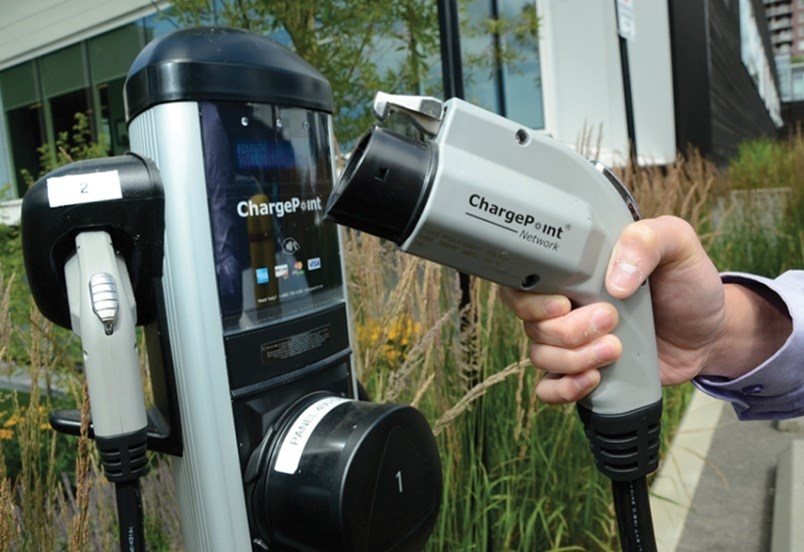A chicken in every pot and an electric vehicle charger in every garage.
The City of North Vancouver will soon require all new residential parking spots to include energized outlets capable of providing Level 2 charging or higher for EVs.
Since 2016, the city has used 20 per cent as the guideline when negotiating with developers for parking stalls capable of charging EVs. But with changes in the consumer auto market and future legislation mandating sales of zero-emission vehicles only by 2040, that is no longer going to cut it, according to Larisa Lensink, environmental sustainability specialist for the city.
“In the last five years, the EV landscape has changed significantly. EV sales have increased exponentially each year and in the third quarter of 2018, EV sales accounted for 15.4 per cent of passenger vehicles sales in B.C.,” Lensink said. “Globally, decarbonization of the transportation sector by 2030 is critical in order to avoid the long-lasting and irreversible effects of climate change, as warned in the recent Intergovernmental Report on Climate Change.”
Level 2 charging requires a 240-volt output - similar to the kind used for a clothes dryer or oven - which can give a car upwards of 112 kilometres of range per hour of charging.
The city will also seek a minimum of 20 per cent of all new commercial and residential visitor parking spaces meet the same requirements.
The new rules take effect on June 1, 2019.
Richmond adopted the same approach in 2017 and other local governments are moving in the same direction, Lensink noted.
Under provincial utility rules, stratas are able to charge a monthly user fee or monitor the usage of a station and apply costs to people charging directly.
The support from city council for the change was unanimous at the Dec. 17 regular meeting of council.
“I think, given that we are expected to be going in this direction, it’s a good policy to put in place,” said Mayor Linda Buchanan, who added the city will also likely be transitioning to EVs for its own fleet in due time. “I certainly think this helps us to reach our targets in terms of our emissions and support us overall in our sustainability goals.”
The District of North Vancouver currently requires 20 per cent of parking stalls in new multi-family developments to be Level 1 EV-ready (the same 110-volt outlet people have in their homes) and 10 per cent of new commercial spaces to be Level 2 ready.
CORRECTION: An earlier version of this story incorrectly stated the District of West Vancouver has no EV charging requirements. In fact, the municipality first introduced EV charging requirements in 2012 and the district’s 2018 Sustainable Buildings Policy requires all new residential parking spaces to include energized outlets capable of Level 2 EV charging.



